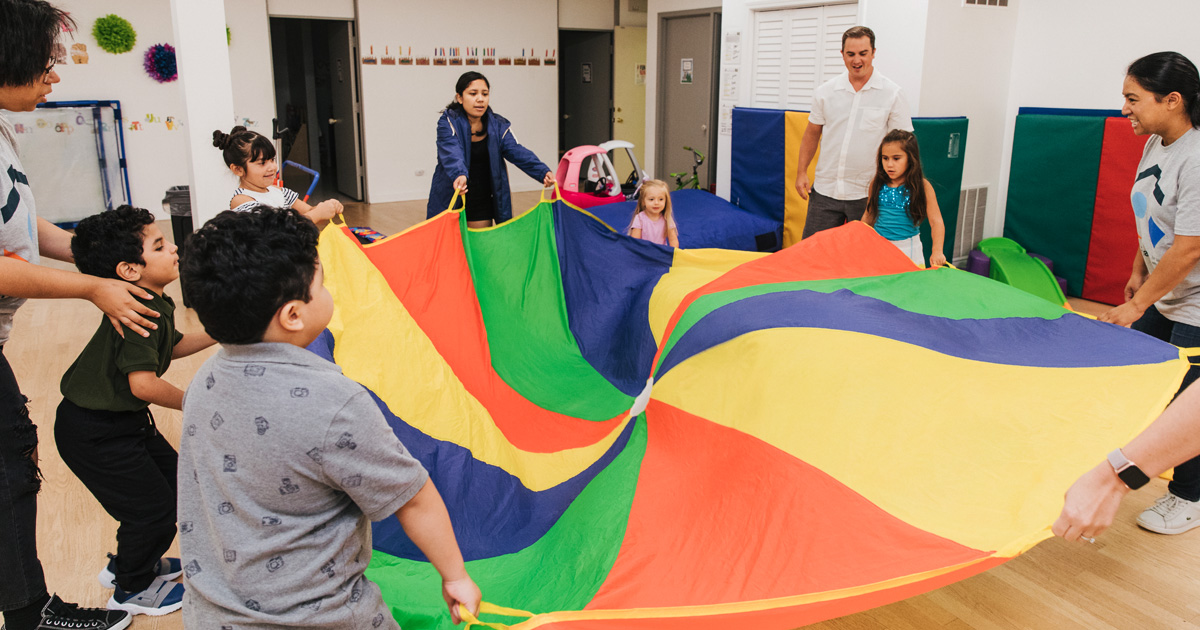Autism awareness is no longer an uncommon concept or sentiment. At its core, awareness of a given issue, or in this case, neurodevelopmental disorders, is simply the first step toward an actionable and deep-rooted acceptance. Autism acceptance has certainly grown, but there is so much more to be done. If we can move our communities beyond awareness and into acceptance, we can build a more inclusive world. In this blog post, we’ll discuss strategies for promoting autism acceptance for a more supportive and inclusive community.
Awareness First
During Autism Awareness Month, there is typically a plethora of resources and stories shared widely online and via social media in the name of awareness. Awareness is used as a gauge of how much our society at large is informed on a given topic. In this case, with an increasing number of autism portrayals in the media, and more robust autism research, we’ve reached a point where many people have, at the very least, a basic understanding of what autism is and what it could look like.
This is a good thing, but in the grand scheme of our very complex society it is only the first step in what has proven to be a long road for people with disabilities. What efforts for awareness often lack is a specific call to action to generate things like policy change, funding, and the learning and unlearning that comes with accepting people of an identity different than your own. In other words, autism awareness is the first round of an uphill battle, where many marginalized groups and identities are often vying for the same attention.
Compassion Fatigue
Compassion fatigue or cause fatigue are terms used to describe the emotional and mental fatigue one can feel surrounding the large stream of incoming information about societal issues, social justice, matters of identity and all the other things we should care about. It can be incredibly difficult to learn it all, and take full responsibility for the things in our own life that contribute. This inevitably leads to things slipping through the cracks, slowing the progress campaigns centered around awareness strive for.
Competing for people’s attention in this way can be disheartening and difficult. Understanding this paints a clearer picture for what is needed moving forward. Applying strong commitments and strategies for acceptance in our efforts will give the cause of people on the spectrum a more meaningful foothold in people’s minds, allowing for the substantial and foundational change needed to better support all people with autism. So, where do we start?
Strategies and Commitments for Autism Acceptance
To move toward autism acceptance, we’ll need to make commitments as individuals to influence our own community and in turn, the world at large. Here’s a few of the strategies you can adopt to change your behavior and promote acceptance:
- Understand the common symptoms of autism, and when you recognize them in someone, take what actions you can to make them feel comfortable. For example, many people on the spectrum avoid direct eye contact as it makes them uncomfortable, so it’s important to not demand that of people, especially in group social settings.
- Educate with every given opportunity. If you’ve made the effort to learn about the autism spectrum, share those resources with those closest to you. When faced with a real life situation involving a microaggression or other discriminatory behavior, use it as a teaching moment, providing insight for how to better handle the situation moving forward.
- Facilitate a deeper understanding in those closest to you, challenging their old ideals when appropriate, and taking responsibility as a teacher and leader. Get involved in your community, especially with organizations and entities doing the on the ground work of supporting people with autism, or funding autism research and services.
- Organize with your circle to strengthen the impact of your efforts. There is power in numbers, and doing things like gathering your local parent group for a charity drive to support services for people on the spectrum has a grand implication for everyone involved.
- Communicate your successes, failures, and everything in between when making the effort to promote autism acceptance. There is no perfect way to instill such a change, but sharing the burden with others and putting it on display can help spread the message more effectively. Use your network.
Keeping these pillars in mind can help strengthen the way each of us plays a role in showing appreciation, respect, and support for people with autism. We look forward to all the ways we can contribute to a more inclusive community. For more on ABA therapy and autism-related news visit our blog and follow us on Facebook, Instagram, YouTube, and Twitter. If you have questions regarding ABA therapy services or you’re interested in visiting one of our locations, don’t hesitate to reach out to us on our contact page. We’re always here to answer your questions and support your family’s needs as best as we can.



